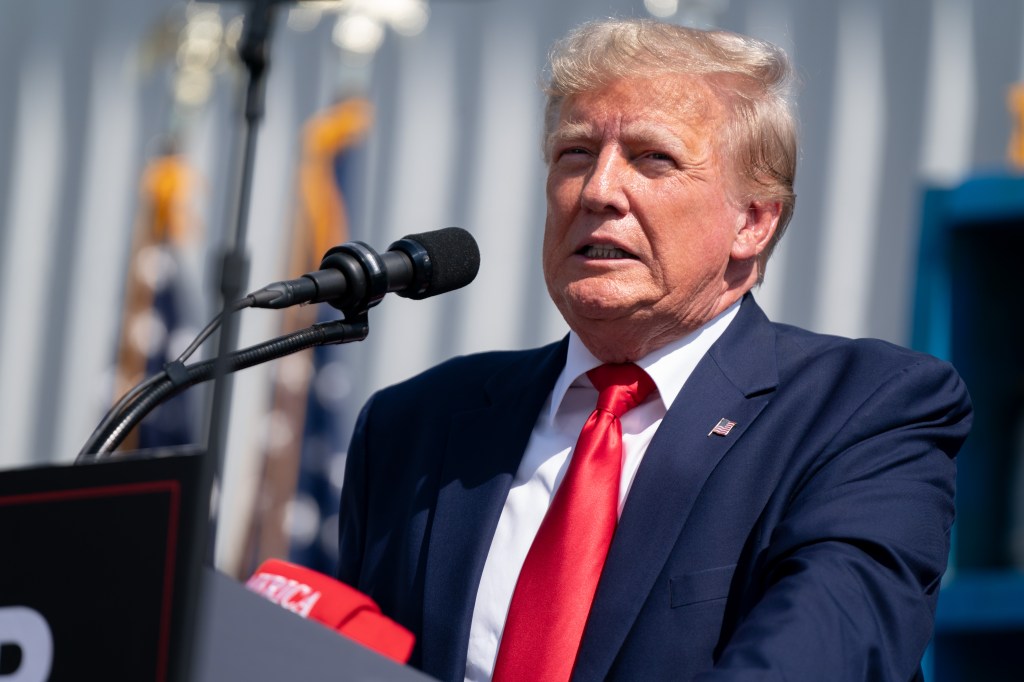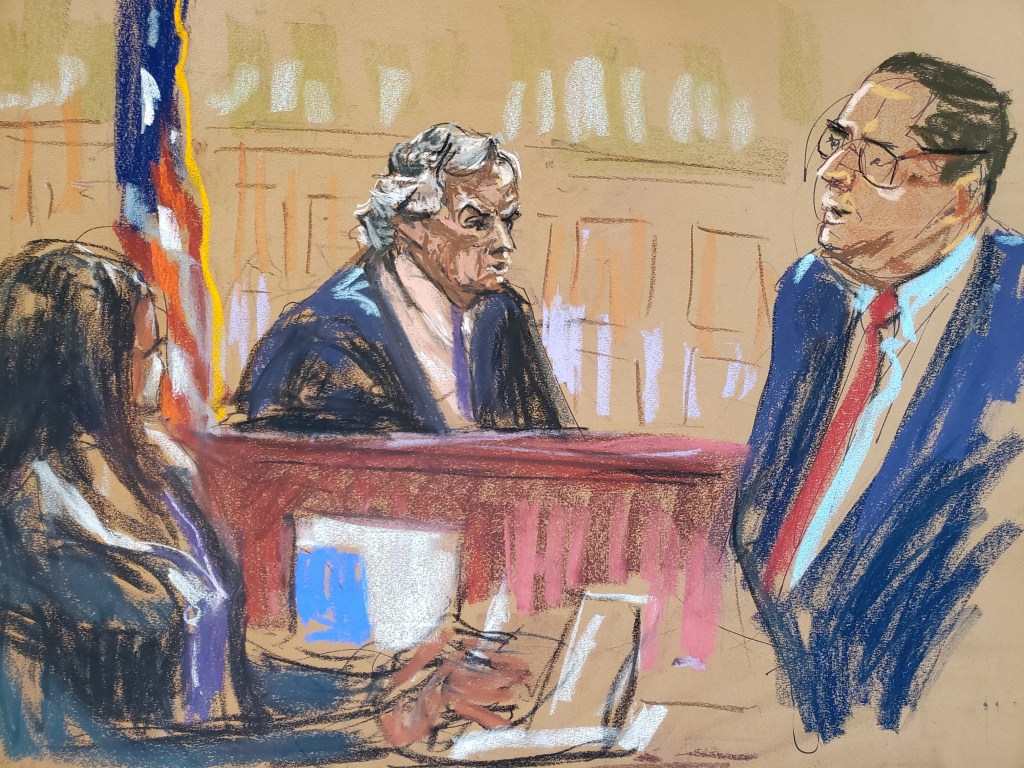Letitia James doubts Trump is ‘truly unable’ to come up with $454M bond as deadline to pay up inches closer
The New York Attorney General’s Office doubts that Donald Trump is “truly unable” to come up with $454 million bond in his civil fraud case — arguing Wednesday that the ex-president could have pledged his real estate properties to the courts.
The filing from AG Letitia James’ office comes after Trump’s lawyers on Monday claimed he was facing “insurmountable difficulties” finding a lender to back the full amount he owes by the March 25 deadline as he seeks to appeal the hefty judgment against him.
If Trump and the other defendants “were truly unable” to secure the bond, “they at minimum should have consented to have their real-estate interests held by the courts to satisfy the judgment,” Dennis Fan, a lawyer with the AG’s Office, responded.
Or Trump “should have otherwise pledged security in real-estate holdings with sufficient value to secure payment of the entire judgment,” Fan wrote.
Trump is seeking to appeal Manhattan Supreme Court Justice Arthur Engoron’s ruling hitting him with the huge judgment over a decade-long fraud scheme in which the real estate tycoon inflated his net worth by billions a year to get an edge on loan and insurance terms.
But the 45th president must either fork over the full amount or secure a bond for it in order to go forward with the appeal.
Here’s how Donald Trump’s NY fraud ruling impacts his businesses
The bombshell court ruling finding Donald Trump liable for fraud left even his own lawyers scratching their heads — asking the judge on Wednesday to clarify his decision canceling the former president’s New York business licenses.
Manhattan Supreme Court Justice Arthur Engoron’s 34-page ruling from Tuesday would force Trump, 77, to hand over control of his Empire State properties — including Trump Tower in Midtown — to an independent third party, otherwise known as a receiver.
In his ruling, the judge wrote the receiver must be appointed “to manage the dissolution of the cancelled” business certificates for limited liability corporations, or LLCs, under the Trump Organization umbrella.
Here’s how the ruling impacts Trump’s businesses, according to legal experts:
What are business certificates and what does it mean to have them revoked?
Business certificates are issued by the state to prove a company’s validity and are used for business transactions.
They can be thought of like a birth certificate for a person, former financial-crimes prosecutor Diana Florence told The Post.
When the judge canceled them, it was like being given “death certificates” — with the ruling amounting to a “corporate death penalty,” Florence said.
Judge revokes Trump’s NY business licenses, finds he committed fraud by inflating wealth
These certificates are required for entities like LLCs and come with privileges such as protecting personal assets if the company goes under, Cornell Law professor Robert Hockett said.
Hockett said a common but “unsavory business practice” is for a company to pretend it has more money than it really does in order to help it get an LLC certificate.
In this case, an LLC functions like a “shell” meant to “evade accountability.”
“What the judge found yesterday is that Trump is effectively doing this,” Hockett told The Post. “He’s been pretending many of these businesses of his are well capitalized and capable of paying their creditors — in effect doing good work that benefits the public and warrants the certifications of limited liability.”
READ MORE
Lawyers for Trump said Monday they’d approached 30 firms as he sought to secure the massive bond without any luck as the companies wouldn’t accept his properties as collateral and he didn’t want to sell his prized real estate buildings at “fire sale” prices.
But Trump could have sought to break up the amount over multiple bonds by multiple backers, “limiting any individual surety’s risk to a smaller sum,” Fan wrote.
Keep up with today's most important news
Stay up on the very latest with Evening Update.
Thanks for signing up!
And Fan highlighted that Trump was able to use real estate as collateral to back a bond for the $83 million judgment he owes writer E. Jean Carroll in her defamation case.
“The use of real estate as collateral for an appeal bond is hardly impossible as a general matter,” Fan wrote.
Fan criticized the former commander-in-chief for failing to provide any proof of all the failed efforts he made in looking for a backer.
“As far as the Court can infer,” surety companies may not have wanted to accept his properties as collateral “because using Mr. Trump’s real estate will generally need ‘a property appraisal’ and his holdings are not nearly as valuable as defendants claim,” Fan said.
At trial, the value of some of the former president’s key properties, such as his Florida residence Mar-a-Lago and his Trump Tower triplex, were constantly debated — with Trump, for instance, claiming the Florida estate was worth $517 million while a local appraiser pegged it at a much lower $27 million.
Trump lawyer Chris Kise said in a statement Wednesday: “The Attorney General’s latest filing demonstrates her continued willingness to misrepresent the facts and misconstrue applicable law in her political crusade against President Trump.”







